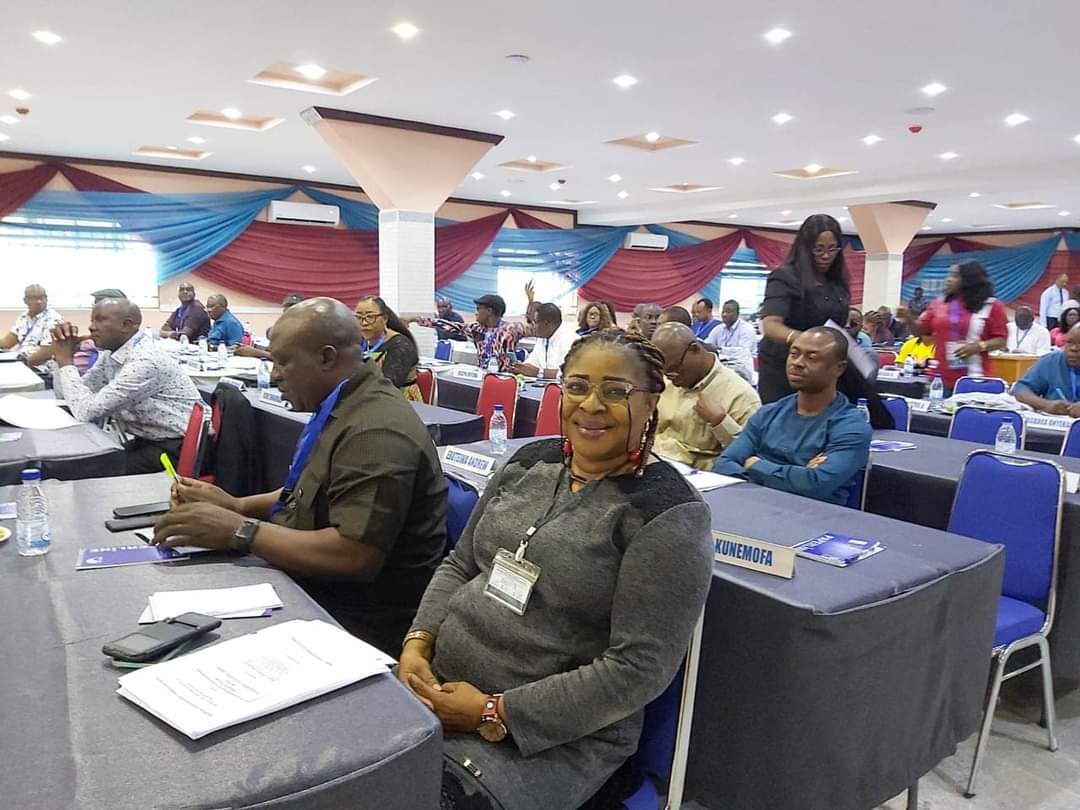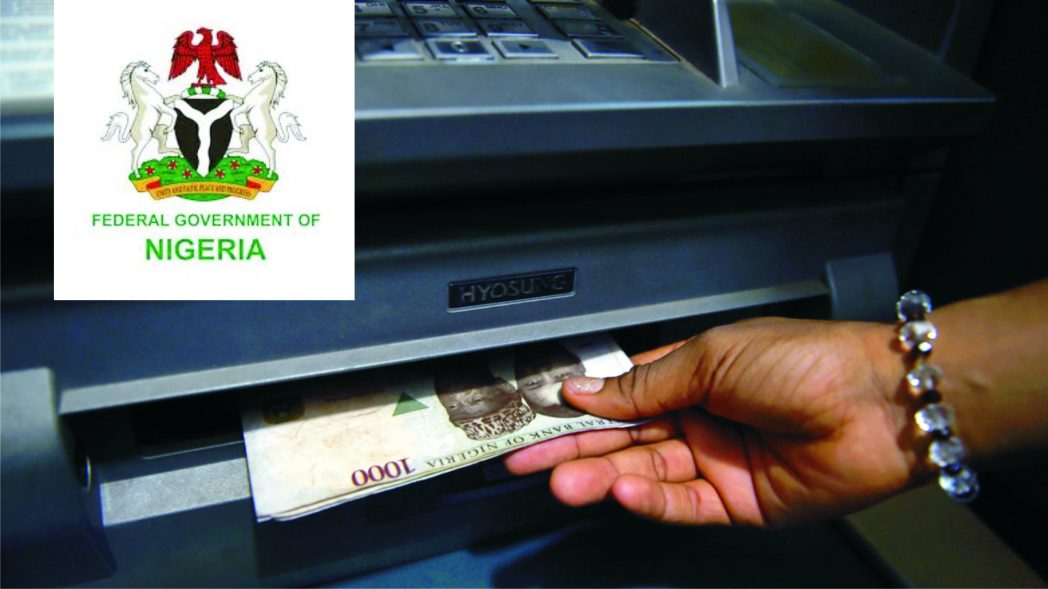Featured
Nigeria’s Inflation Rate Hits 21.47%

The National Bureau of Statistics (NBS) has said that Nigeria’s headline inflation rate increased to 21.47per cent on a year-on-year basis in November 2022.
Nigeria’s headline inflation rate stood at 21.09per cent on a year-on-year basis in October 2022.
The NBS made this known via its Consumer Price Index (CPI) and Inflation Report for November released, yesterday.
It stated that the figure is 6.07per cent points higher compared to 15.40per cent recorded in November 2021.
According to the report, factors responsible for the increase in annual inflation rate include an increase in the cost of importation due to the continual currency depreciation and a general increase in the cost of production due to a surge in energy cost.
The NBS said on a month-on-month basis, the headline inflation rate in November 2022 was 1.39per cent, which was 0.15per cent higher than the rate recorded in October 2022 at 1.24per cent.
It attributed the increase in the monthly inflation rate (month-on-month basis) to higher demand, usually experience during the festive season.
“The percentage change in the average CPI for the 12 months ending November 2022 over the average of the CPI for the previous 12 months period was 18.37per cent, showing a 1.39per cent increase compared to the 16.98per cent recorded in November 2021.
“The components that made up the food sub-index in November 2022 2022 was 24.13per cent on a year-on-year basis; which was 6.92per cent higher compared to the rate recorded in November 2021 (17.21per cent). The rise in the food sub-index was caused by the increases in prices of bread and cereals, oil and fat, potatoes, yam and other tubers, food products n.e.c, and fish.
“Whereas the month-on-month food inflation rate in November was 1.40per cent, this was 0.17per cent higher compared to the rate recorded in October 2022 (1.23per cent). The increase was attributed to an increase in prices of some food items like oil and fat, fruits, fish, and tubers,” the NBS added.
It noted that the average annual rate of food inflation for the twelve-month ending November 2022 was 20.41per cent, saying this was 0.21per cent points decline from the annual rate of change recorded in November 2021 (20.62per cent).
It stated that that core inflation rate, that is all-items index less farm produce, which excludes the prices of volatile agricultural produce stood at 18.24per cent in November 2022 on a year-on-year basis; showing a rise of 4.39per cent when compared to 13.85per cent recorded in November 2021.
The NBS said on a month-on-month basis, the core inflation rate was 1.67per cent in November 2022, while the rate was 0.93per cent in October 2022.
“This shows a rise of 0.74per cent. The highest increases were recorded in prices of gas, liquid fuel, and passenger transport by air, vehicle spare parts, and solid fuel,” it noted.
According to the report, the percentage change in the average CPI for the 12 months ending November 2022 was 15.69per cent, which was 2.73per cent points higher than the previous 12 months period which recorded 12.96per cent in November 2021.
It stated that the urban consumers’ inflation rate for November 2022, on a year-on-year basis, stood at 22.09per cent, noting that this was 6.17per cent higher compared to the 15.92per cent recorded in November 2021.
The NBS disclosed that on a month-on-month basis, the urban inflation rate was 1.50per cent in November 2022, saying this was 0.16per cent higher compared to October 2022 (1.33per cent).
It said the corresponding 12-month average for the urban inflation rate was 18.90per cent in November 2022.
“This was 1.35percent higher compared to the 17.55per cent reported in November 2021,” it added.
The report noted that the inflation rate for rural consumers in November 2022 was 20.88per cent on a year-on-year basis, saying this was 5.99per cent higher compared to 14.89per cent recorded in November 2021.
“On a month-on-month basis, the rural inflation rate in November 2022 was 1.30percent, indicating a rise of 0.14per cent compared to October 2022 (1.16per cent).
“While the corresponding twelve-month average for the rural inflation rate in November 2022 was 17.88per cent. This was 1.46per cent higher compared to the 16.42per cent recorded in November 2021.
“In comparing the states’ profiles, all-item inflation rates for November 2022 on a year-on-year basis were highest in Ebonyi (26.11per cent), Kogi (25.84per cent), Rivers (24.45per cent), while Kaduna (18.87per cent), Sokoto (19.02per cent) and Cross river (19.17per cent) recorded the slowest rise in inflation.
“On a month-on-month basis, however, November 2022 recorded the highest increases in Ebonyi (3.16per cent), Niger (2.70per cent), Plateau (2.44per cent), while Ogun (-0.17per cent), Abuja (-0.12per cent), and Sokoto (0.25per cent) recorded the slowest rise on month-on-month inflation,” the NBS added.
Featured
We’re Genuinely Opening Up Kalabari Land For Development, Says Fubara

Rivers State Governor, Sir Siminalayi Fubara, has explained that his administration is courageously executing strategic projects that are opening up Kalabari land for unprecedented development and economic growth.
Governor Fubara made the explanation when he received on solidarity visit, a delegation of monarchs, political leaders, elders, women and youths of Kalabari Ethnic Nationality, led by the Amanyanabo of Abonnema, King Disreal Gbobo Bobmanuel, at Banquet Hall of Government House in Port Harcourt, last Tuesday.
The Governor stated that while previous administrations avoided executing the original plan for the Trans-Kalabari Road project due to cost implications, he has ventured into it, and driving the process steadily in order to link Kalabari land to the State capital.
Governor said: “Somebody said, if I don’t do it for my people, who will do it for them. We ventured into the Trans-Kalabari Road, we didn’t close our eyes. Our eyes were open because we knew what we were entering into.
“It is not a joke; it is a big project. We believe that at the end of that project, the level of development that it will attract to that line of entry into Kalabari will be very unprecedented.
“Issues of insecurity from our waterways will be reduced because, at that point we are doing road, people won’t be using the river anymore. The cost of living will also be cheaper.”
Governor Fubara further asserted: “So, you understand that your interest, your safety, your development is key to us. It is not about the number of years that we are going to be here; what is important to this government is the impact we make while we are here.”
Responding to their unanimous endorsement to see him run for a second term in office, Governor Fubara said power belongs to God, and He gives it to whoever finds favour in His sight.
Governor Fubara, however, stated that if God so approved of it, even those who are regrouping against him will not see the path God will lead him because they cannot scuttle such plan.
He added, “Power belongs to God. So, you see, I like believing that we don’t have any problem. When we get to the bridge, we will cross it. If we can break the bridge, Moses will come and create a road for us. So, you don’t need to worry.
“We will cross the bridge. We will cross it in a way that our enemies will be struggling; they won’t see where we are passing. So, don’t worry.”
Governor Fubara acknowledged the immense support to him by Rivers Ijaw, and urged particularly the Kalabari people to stand with honour in their unalloyed support for his administration, which will neither abandon them nor fail to deliver quality projects to the people.
Governor Fubara also responded to their requests and informed them that his administration has completed the Emohua/Tema Junction Road project, and ready to inaugurate the Degema Zonal Hospital in May.
He said the Health Commissioner has been directed to assess the state of the Abonnema General Hospital for immediate rehabilitation, while promising to address the issues of shore protection in the area.
Governor Fubara assured that with the Abonnema sandfilling works completed, the phase two will commence that will include Buguma, explaining that the Commissioner for Works has been tasked to do the assessment immediately.
On the request for the establishment of tertiary institution in the area, Governor Fubara said his administration is already inaudated with memos asking that the off-campus of Rivers State University established previously be revised because it has become difficult to sustain them, but quickly added that the government will consider the establishment of a viable institution that will provide technical and entrepreneurial skills to the people in a sustained manner.
Reading the address of Kalabari Ethnic Nationality, Chief Pawariso Samuel Horsfall, announced that the entire Kalabari people have unanimously endorsed Governor Fubara for a second term, and vowed to mobilise Rivers people to ensure electoral victory for him in the 2027 gubernatorial election.
In his speech, the leader of the delegation and Amanyanabo of Abonnema, King Disreal Gbobo Bobmanuel, expressed the profound thanks of the Kalabari people to Governor Fubara for his genuine love for them, as evidenced in the types and quality of development projects delivered or being executed in the area.
Featured
Senate Passes N54.9trn 2025 Appropriation Bill

The National Assembly, yesterday, passed the N54.9 trillion 2025 Appropriation Bill.
The Tide source reports that this followed the adoption of the report of the Committee on Appropriations on the bill.
The report was presented by Chairman of the Committee, Sen. Solomon Adeola (APC-Ogun).
The Tide source reports that highlights of the passed 2025 appropriation bill indicates an aggregate expenditure of N54.9 trillion, statutory transfers of N3.6 trillion, with recurrent expenditure put at N13.6 trillion.
While the sum of N23.9 trillion was earmarked for capital expenditure, debt servicing was put at N14.3 trillion, fiscal deficit N13.8 trillion, while 1.52 per cent was approved as deficit and GDP.
Olamilekan, while presenting the report, said that the senate debated the general principles of the bill on Dec. 19, 2024.
This, he said, had resulted in the second reading of the bill after which it was referred to his committee for further legislative action.
The senator said that the initial proposal of the executive was N49.7 trillion.
He, however, said while processing the bill, the joint committee on appropriations met the president’s economic team to discuss the revenue projection and expenditure of the appropriation bill.
“After series of meetings, the Committee on Finance, in conjunction with our committee, sourced for additional revenue from some revenue-generating agencies,” he said.
Adeola said that the additional fund was made possible because of the increase in revenue by some of the revenue-generating agencies.
He further stated that some agencies of government provided funds to take care of critical needs.
The lawmaker said that the upward review of the budget from N49.7 trillion to N54.9 trillion was to cater for the difference between the details and the bill, procurement of vaccines and additional funding to some government agencies.
“The joint committee worked harmoniously with the leadership of the National Assembly and the executive arm of government in the processing of the bill.
“This ensured maximum collaboration of the two arms in the utilisation of additional revenue projection.
”This is to improve the funding of some critical projects which could not be adequately funded in the budget proposal earlier submitted by Mr President due to funding constraints,” he said.
Adeola said that the 2025 appropriation bill was presented late as against the 2024 appropriation bill.
He urged the executive to present the budget to national assembly not later than three months before the beginning of the next financial year.
“This will help return the country to the January-December budget circle,” he said.
Featured
CBN Retains N100 ATM Fee For Withdrawal Below N20,000

The Central Bank of Nigeria (CBN) has announced that Nigerians withdrawing less than N20,000 from another bank’s Automated Teller Machine will still be charged a fee of N100 per transaction.
This is according to a FAQ document published by the apex bank on its website, yesterday, which provides further information on a new CBN’s directive.
The directive is part of the newly revised ATM transaction fees set to take effect from March 1, 2025, as contained in the CBN circular dated February 10, 2025.
Under the revised fee structure, withdrawals from one’s bank ATMs will remain free of charge.
However, customers using ATMs of other banks will be subjected to a charge of N100 per withdrawal of N20,000 or less at on-site ATMs, which are located within or directly affiliated with a bank branch.
Off-site ATMs, which are positioned outside bank premises such as shopping malls, fuel stations, and other public spaces, will attract an additional surcharge of up to N500 per transaction.
For international ATM withdrawals, charges will be based on cost recovery, meaning customers will bear the exact fee applied by the international acquirer.
The CBN stated that the charge on withdrawals below N20,000 is intended to prevent customers from splitting withdrawals into smaller amounts to avoid fees.
The FAQ document read, “Yes, the fee of N100 will apply if you withdraw less than N20,000 from another bank (a bank other than the one that issued your payment card).
“The reason for applying the fee for every N20,000 withdrawal is to prevent customers from being compelled to break their withdrawals to less than N20,000 per withdrawal.
“In other words, ATM transactions will incur a base fee of N100 per transaction. It is also important to note that a tiered fee structure will apply for transactions exceeding N20,000, with an additional N100 charged for each subsequent withdrawal of N20,000 or portion thereof.”
Customers withdrawing more than N20,000 from another bank’s ATM will be charged an additional N100 for every subsequent N20,000 or portion thereof.
Another significant change in the revised structure is the removal of the three free monthly withdrawals previously allowed for customers using other banks’ ATMs.
From March 1, 2025, all withdrawals at another bank’s ATM will attract charges, potentially increasing costs for customers who frequently use ATMs outside their primary bank.
The apex bank has clarified that financial institutions are not permitted to charge more than the prescribed fees, although banks may reduce charges depending on their business strategy.
Any bank found in violation of the directive, including compelling customers to withdraw less than N20,000 per transaction despite sufficient funds in their account, will be sanctioned accordingly.
Customers who experience such restrictions are encouraged to report complaints to the CBN Consumer Protection Department via cpd@cbn.gov.ng.
To minimise transaction fees, the CBN has advised customers to prioritise withdrawals from their bank’s own ATMs.
It also encouraged Nigerians to explore alternative payment methods such as mobile banking applications, POS transactions, and electronic transfers to reduce reliance on cash withdrawals.
-
Sports5 days ago
‘University Of Sports To Foster Talent, Expertise’
-
Sports5 days ago
NPFL: Eguma Decries Over Red Card
-
Nation5 days ago
AfDB President Denies 2027 Presidential Ambition
-

 Featured5 days ago
Featured5 days agoWe’re Genuinely Opening Up Kalabari Land For Development, Says Fubara
-
Politics5 days ago
Diri’s 5th Anniversary: Otu Hails Bayelsa Gov’s Achievements In Office
-
News25 mins ago
Joint Provincial Council, East Of The Niger Salutes Diocese Of Evo
-
Sports5 days ago
NSC Inaugurates LOC For 14th Africa Armwrestling Championship
-
Sports5 days ago
NSC Commends NSSF, NCF Others On Impressive Performance

